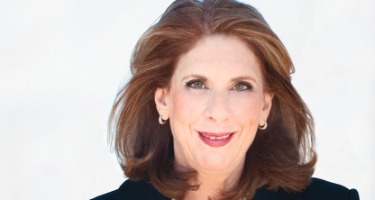For decades, confidentiality and nondisclosure provisions have been essential components of most employment-related settlement agreements. Without those protections, employers are reluctant to settle. They want assurance that only the parties to the settlement (and their tax and legal advisors) will know the amount paid and the basis for payment to resolve allegations of misconduct.
Many agreements, too, include significant remedy clauses for breach of these provisions, which employers reasonably expect will be a strong deterrent—enforced by the threat of payments being “clawed back”—to discussing the claims publicly via any media forum, especially social media. Employers don’t want others to know beyond doubt that any payment was made, and (if it indeed was) whether it was made to protect the reputation of the business or the individual. And they very much want to prevent disclosure’s primary unintended consequence: more claimants bringing more claims.
Now, though, settlement terms of this nature require new thinking—and it’s all due to recent tax-law changes.
A Costly Silence
When employers structure sexual-harassment or sexual-abuse claim settlements, lawyers must now be more attuned than ever to the tax implications—for the Tax Cuts and Jobs Act made clear that as of December 22, 2017, no deduction will be permitted for employers concerning amounts “paid or incurred” if a given settlement is related to harassment or abuse and there is a nondisclosure clause. In other words, advisors must understand that under Section 162(q) of the Internal Revenue Code (Section 162 governs deductibility), a confidentiality or nondisclosure provision will now disqualify the settlement payment as a deductible business expense. This applies whether the payment is for a litigated or non-litigated matter, and whether the harassment or abuse was just one cause of action, or one of many.
The exact statutory language is important, because it is both extremely broad and very limiting in its explanation, leaving many questions about how it will be applied and enforced. Section 162(q), “Payments Related to Sexual Harassment and Sexual Abuse,” expressly states that “[n]o deduction shall be allowed under this chapter for—
(1) any settlement or payment related to sexual harassment or sexual abuse if such settlement or payment is subject to a nondisclosure agreement, or
(2) attorney’s fees related to such settlement or payment.”
This deduction elimination has been called the “Weinstein Tax,” after disgraced Hollywood mogul Harvey Weinstein, whose alleged history of misbehavior sparked what became a #MeToo conflagration. It appears designed specifically to punish alleged harassers or abusers by making their anonymity far more costly—an effort, quite evidently, to legislate better conduct and thereby foment social change.
Unbound by confidentiality, those claiming wrongdoing can speak about those they’re accusing, the circumstances of the allegations, and even their payment in any manner they see fit. If the accused employer or wrongdoer wants the tax deduction, after all, it will have to forego a nondisclosure clause. Assessing the relative import of confidentiality versus deductions will be one of the primary forces in structuring these settlements.
Protection for Plaintiffs?
Until recently, it was an open question whether the plaintiff, employee, or accuser was also denied a tax benefit. It wouldn’t make sense that a nondisclosure agreement would bring the same consequences to bear on accuser and accused. It might well be, after all, that the accuser is the one who desires or needs confidentiality, and might not settle without it. Yet they’d also be required to pay tax on the legal fees the attorneys were being taxed on—meaning they’d be taxed on 100 percent of their recoveries, not just the net amount minus legal fees. The 2017 statute, however, is silent on this topic.
A February 28, 2019, FAQ from the Internal Revenue Service addressed the issue of taxing the plaintiff, stating that “recipients of settlements or payments related to sexual harassment or sexual abuse, whose settlement or payment is subject to a nondisclosure agreement, are not precluded by Section 162(q) from deducting attorneys’ fees related to the settlement or payment, if otherwise deductible.”
This marked the first interpretation of the statute, and it makes an important distinction. The IRS is saying, in effect, We will not punish the accuser. The phrase “if otherwise deductible” is also key here, as a number of other analyses must be made, based on earnings, to ensure that payments for legal fees are deductible. How to qualify for the business-expense deduction in the first place is beyond the scope of this article, but it’s essential to understand all the same, and businesses and individuals should consult a tax lawyer to avoid surprises. Otherwise, something seemingly deductible might not be—which would surely factor into the decision to settle with or without a nondisclosure agreement.
A number of other questions remain about how this tax-code amendment will affect sexual-harassment or abuse claims. If an employer is defending a lawsuit containing claims of sexual harassment, equal-pay violation, and gender discrimination, can the business settle with a nondisclosure clause by allocating all payments and legal fees to the latter two claims? Would the money then be “related” to the sexual-harassment claim regardless, and how is that determined?
These and other conundrums will no doubt keep the courts busy, but as of now there are no case interpretations of the statute, just one IRS FAQ. The risk rests with the employer and the accused—but that’s exactly where it belongs if one wants to legislate behavioral changes in the workplace.
-------------------
Ann E. Evanko is president and managing member of Hurwitz & Fine, P.C. Her primary areas of practice are Employment Law & Commercial Litigation, where she advises clients on all aspects of employment law issues and defends employers in the full range of litigated matters. She is the 2019 recipient of Best Lawyers’ “Lawyer of the Year” award in Buffalo for her area of practice, Litigation – Labor and Employment.
Katherine L. Wood is an associate in Hurwitz & Fine, P.C.’s Employment Law practice group, where she focuses her practice in employment law counseling and litigation defense. She is a current co-chair of the WBASNY WNY Chapter Newsletter committee, and a volunteer tutor with Lawyers for Learning, where she tutors elementary school students in an effort to give back to the local community.

































